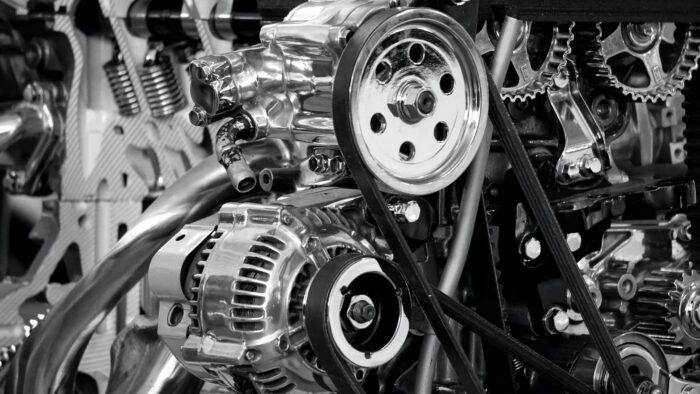When you put diesel in a gas car, it would make your engine get clogged and you may need to replace some engine components.
Have you ever wondered what would happen if you accidentally put diesel fuel into a gasoline-powered car?
It might seem like a simple mistake, but it can lead to significant consequences for your vehicle.
In this blog post, we will explore the potential outcomes of putting diesel in a gas car, the reasons why you should never attempt it, and how to handle such a situation if it ever occurs.
So, what happens if you put diesel in a gas car? Let’s find out now!
What Happens If You Put Diesel in a Gas Car? Diesel Vs Gasoline
When you talk about fuels for conventional cars, you either talk about diesel or gasoline.
However, these two fuel types are not interchangeable. Putting diesel in a gas car and turning on the engine may lead to severe damage to your engine and nobody wants to spend thousands of dollars on a new car engine.
So, can you put diesel in a gas car? The short answer is a resounding NO! Diesel fuel and gasoline have completely different properties and are designed to work with specific engine types.
For example, gasoline engines rely on spark plugs to ignite the fuel mixture, while diesel engines use compression to ignite the fuel.
Consequently, mixing the two fuels or exchanging one for another can lead to disastrous results.
What Happens If You Put Diesel in a Gas Car? Consequences
When diesel is mistakenly added to a gasoline-powered vehicle and the engine is turned on, several issues arise due to the significant differences in their chemical composition. Some of these issues include:
- Clogged Fuel System: Of course, diesel has a higher density than gasoline, which means it won’t evaporate as easily. When you attempt to start the engine, the diesel may not ignite properly, leading to incomplete combustion and potentially clogging the fuel system.
- Engine Knocking and Damage: Diesel burns at a different rate than gasoline, causing uneven pressure within the engine cylinders. This can lead to engine knocking, which, if left unchecked, can cause severe damage to internal engine components.
- Loss of Power and Performance: The mismatched fuel will negatively affect the engine’s power and performance as you may have guessed. Your car may also struggle to accelerate, lose its responsiveness, and experience reduced fuel efficiency.
- Excessive Smoke and Emissions: What happens if you put diesel in a car? That’s right, emissions! Diesel in a gas car can produce thick black smoke from the exhaust due to incomplete combustion and the more you keep driving that vehicle with the wrong fuel type, the more emissions your car produces, and the more the environment is harmed.
Driving your car with diesel in the tank, may also lead to damage of the catalytic converter.
The catalytic converter is a device that helps to reduce emissions from your car.
If it is damaged, it can increase your car’s emissions and make it pollute more.
Read Also: What is a Spoon Engine? Everything You Need To Know About Spoon Engines
Click Here to Check by VIN Number
Handling the Situation
So, you got diesel in your gas car. First, you need to calm down. Take a deep breath and pay attention. If you accidentally put diesel in your gas car, here are the steps to take:
STEP 1: Do Not Start the Engine
If you realize your mistake before starting the engine, do not turn the key.
Starting the car will circulate the incorrect fuel throughout the system and worsen the problem.
So, make sure to get off the vehicle immediately and start making the necessary calls.
STEP 2: Call for Assistance
You need to take your car to the nearest mechanic but you just can’t drive.
What do you do? Contact a towing service or roadside assistance immediately.
Simple, with the towing service, your vehicle can be towed and taken to a trusted mechanic.
Attempting to drive the car will cause further severe damage. So, be sure not to skip this step.
STEP 3: Drain the Fuel System
Next, your tank needs to be emptied. A professional mechanic will need to drain the contaminated fuel from your car’s tank and fuel lines.
If possible, make sure that the entire system is flushed to remove any residue.
STEP 4: Inspect for Damage
Lastly, you and the mechanic can now inspect the engine and vehicle for damage.
The mechanic should inspect the engine thoroughly for any damage caused by the incorrect fuel.
Addressing issues early can prevent more significant problems in the future.
Now you know what happens if you put diesel in a gas car and how to handle the situation when the need arises.
Try to be extra careful to avoid this situation in the first place. Now, for car buyers, the next section is for you.
Read Also: Hybrid vs Electric Cars: Pros & Cons and Which is Better?
Are You Buying a Vehicle With a Damaged Engine?
With Detailed Vehicle Reports, you can access service and repair history with a VIN check service.
Our VIN Check tool accurately decodes and provides vehicle history information.
This way, you can check and verify the cause of the damages and defects in any vehicle.
With our accurate VIN check tool, you can gain access to the following information:
- Accident history
- Auction records with more than 10 photos
- Sales history
- Damage records
- Vehicle specifications
- Lien and loan records
- Open recalls
- Theft records
- Ownership history
- Title-brand records
- Warranty information
- OEM maintenance schedules
- Service history, and more
Before buying that used vehicle or replacing a damaged engine, be sure to get a vehicle history report and be sure of your purchase. Make the best choices with detailed information about any car today.
Frequently Asked Questions
What happens if you put diesel in a gas car?
When you put diesel in a gas car, it would make your engine get clogged and you may need to replace some engine components.
Can I mix diesel with gasoline to “dilute” the fuel?
No, this is not a viable solution. The diesel will still negatively impact the engine, and mixing fuels can lead to unpredictable engine behavior.
Will diesel ruin a gas engine?
Yes, diesel in a gas engine can cause severe damage due to different properties and combustion. Turning on a gasoline engine with diesel may lead to engine knocking, clogged fuel systems, and also power loss.
How do you flush a diesel out of a petrol engine?
Don’t even think about starting the engine. Get professional help to drain and flush the contaminated fuel immediately, replace the fuel filter, and refill with the correct petrol.










